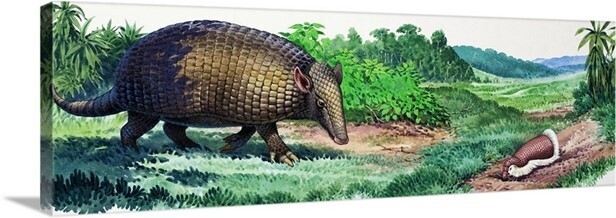Toward a poetry and poetics of the Americas (34)
Diocelina Restrepo, 'What the Great Armadillo Said in Dreams to Me'

Narrated by Diocelina Restrepo, Yukpa People, Sokorpá, Colombia
Assembled and translated by Javier Taboada after Anne Goletz’s research
From Rothenberg and Taboada, the big book of the Americas, now in progress
“our food, the worm
“is among you
“we suffer, for our land has been burned
“give away your cat to someone else, so you can know me
“I’ll reveal myself in the house
“go there around 6 am
“where the water breaks
“I’ll talk to you
“if you don’t listen, the Earth will slant
“I come for you to learn how to heal children
“you’ll always lay your hands on them
“you’ll always be healing
“if you really listen, we’ll help you
“we’ll be with you
“if you do this
[and he performed a sleight of hand]
“you’ll chase away the storms
“this knowledge will be forever in you
“will be stuck to you forever
“the climate is in our hands
“will you take it in yours?
“if they could only see me
“yes. I am. we are
[and he started to sing:]
mmh-mhm-aha-ha-hah
we’re here
for you yukpa
if you’re really listening
you’ll heal your children
with your hands
“it’s true you respect us
“you listen to me
“you believe in me
“for you sing our song
“now we are very few
“they have killed us all
“stop killing us
COMMENTARY
(1) The above selection assembles the different sayings that Kamashrhush [“The Great Armadillo”] told in dreams to the Yukpa ritualist Diocelina Restrepo. The Armadillo — known for being a friend of humanity in Amazonian culture — teaches Restrepo how to heal through a movement of the hands that would allow her “to chase away the storms.” For the Yukpa world (as for many others), macro- and microcosm are the same thing. So, the power to control the weather, its effluvia, also grants the power to control our body fluids: water and air that manifest themselves, when uncontrolled, as illness: coughing, sneezing, diarrhea, vomit, etc.
(2) Writes Anne Goletz of the research on which this English version is based: “In the context of an Anthropology of Dreaming dominated by the notion of soul-travels, this paper discusses the passive and embodied manner of dream experiences shaped by the visit from the other-than-human realm into the dreamer’s everyday life. Furthermore, it highlights the cooperative nature of the relationship between Diocelina Restrepo and [the armadillo] Kamashrhush against the backdrop of armadillo-human practices based on (respectful) hunting and avoidance.”
The relation of Restrepo’s vision to the latterday perils of weather/climate change is also worth noting.
(3) Of the deep ecopoetics implicit here and elsewhere in these pages, Jonathan Skinner writes: “Rather than locate a ‘kind’ of writing as ‘ecopoetic,’ it may be more helpful to think of ecopoetics as a form of site-specificity — to shift the focus from themes to topoi, tropes and entropologies, to institutional critique of ‘green’ discourse itself, and to an array of practices converging on the oikos, the planet Earth that is the only home our species currently knows.”
Poems and poetics